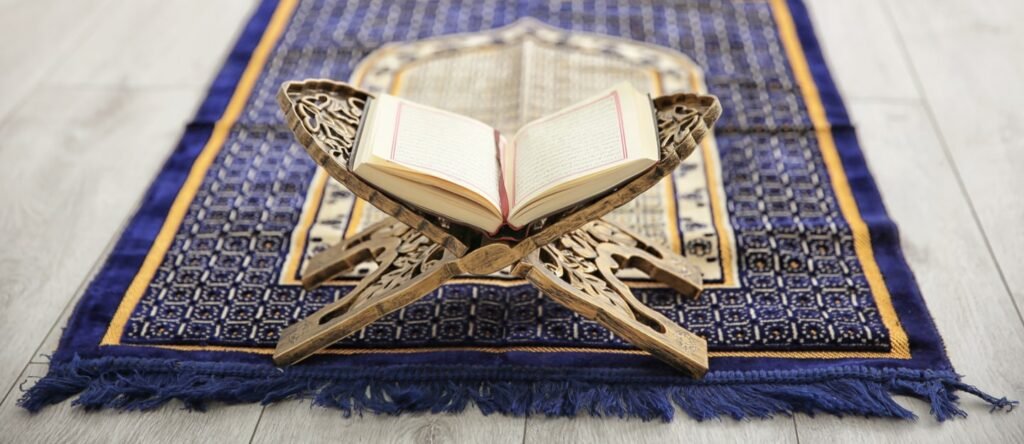For many in Dubai, the afternoon carries a unique rhythm. The fast-paced energy of the morning slowly settles, giving way to a more contemplative mood. It’s during this time that the call to Asar Namaz rings through the city — a gentle but powerful reminder to pause, reflect, and reconnect.
Asar, the third prayer of the day in Islam, holds a special place for those seeking peace in the middle of their busy schedules. Unlike Fajr, which begins before sunrise, or Maghrib, which comes at sunset, Asar falls in the quiet lull of late afternoon — a beautiful pause before the evening rush.
In Dubai, a city that thrives on ambition, innovation, and a constant forward motion, it’s this sacred break that many hold onto dearly. Whether you’re working in a high-rise office, managing your family at home, or exploring the city’s wonders, Asar brings a calm that’s unmatched.

Understanding Asar Time in Dubai
The timing of Asar prayer isn’t fixed by the hour but rather by the position of the sun. In Dubai, that means Asar usually begins in the late afternoon, once the shadow of an object becomes equal to its length, plus the shadow length at noon. This may sound scientific, but to the faithful, it’s a natural rhythm that becomes second nature over time.

Depending on the season, the Asar prayer time in Dubai can shift slightly. During the cooler months, when days are shorter, Asar may begin a little earlier. In the summer, with the sun staying out longer, the prayer begins later. On average, however, you’ll find that Asar usually falls somewhere between 3:30 PM to 4:30 PM throughout the year.
For many people living in Dubai — whether long-time residents or new arrivals — setting aside time for Asar becomes part of their daily structure. It’s not just about timing; it’s about making space for reflection.

The Power of a Midday Pause
In a city like Dubai, where success is celebrated and ambition is everywhere, pausing in the middle of the day can feel counterintuitive. But that’s exactly what makes Asar so powerful. It offers a moment of intentional stillness, something that’s easy to lose in the rush of deadlines, meetings, and responsibilities.
For some, this prayer is a moment to step out of their busy routines and realign with their faith. For others, it’s a time to reset mentally, to breathe deeply and check in with their inner world. And for many, it’s a quiet moment of gratitude — for the blessings of work, life, and family.
Whether performed in a mosque surrounded by others or alone in a quiet corner, Asar brings about a feeling of being grounded. It reminds people that despite the busyness of life, there’s always time for God, for peace, and for the self.
How Dubai Supports Prayer in Everyday Life
One of the beautiful things about living in Dubai is how seamlessly faith integrates into daily life. The city, though modern and dynamic, never forgets its spiritual roots. From the gentle call to prayer echoing through neighborhoods to the dedicated prayer rooms in malls, offices, and even public parks — Dubai makes it easier for people to observe their faith, no matter where they are.
In most workplaces across the city, employers respect and accommodate prayer times. It’s not uncommon to see professionals stepping away from their desks in the late afternoon to observe Asar, returning shortly after with a renewed sense of focus and calm.
This kind of support creates a culture where prayer is not seen as an interruption but as an essential part of well-being. People aren’t just encouraged to work hard; they’re encouraged to take care of their souls too.
Making Asar a Daily Habit
For those who are still trying to establish a strong prayer routine, Asar can be a great starting point. It’s placed at a time when most people are already alert and active, and integrating it into a daily schedule is relatively easy. A simple alarm, a calendar reminder, or syncing with a prayer app can help new worshippers stay consistent.
But more than tools and reminders, it’s the personal intention that matters most. When one decides to make space for prayer — not just out of obligation, but from a place of longing or peace — it begins to transform their day. Asar becomes not just something to check off a list, but a time to recharge, to whisper quiet prayers, and to step into spiritual alignment.
Even a five-minute prayer can shift your energy, especially when the world outside is demanding your constant attention. That’s the beauty of Asar — it gives you permission to step away and return to your tasks with more clarity and calm.

Asar and the Family Routine
Many families in Dubai incorporate Asar into their home routine. It becomes a point where everyone pauses — kids returning from school, parents finishing tasks — and they come together in prayer. For young children, watching their parents observe Asar can have a powerful, lasting effect. It teaches them early that spiritual moments are worth protecting, no matter how busy life gets.
For parents, especially mothers managing multiple roles, Asar can be a moment of rest. It becomes that rare slice of the day that belongs solely to them, away from noise and responsibilities. In that moment of sajdah, many find the strength to carry on with their evening duties with love and patience.
The Spiritual Benefits of Asar
In Islam, every prayer has its own significance. Asar is often associated with reflection, forgiveness, and preparation. It’s a time when the day begins its descent into evening — a moment to look back and evaluate how you spent your day so far, and how you want to finish it.
Many believe that making dua during Asar carries weight, especially on Fridays, when the blessings are said to multiply. It’s during this quiet hour that people often ask for guidance, peace, or healing — for themselves and their loved ones.
This prayer helps create an internal balance. It draws a line between the demands of the outside world and the inner peace that can only come through worship. For those who consistently observe Asar, the benefits go beyond spiritual rewards. There’s emotional relief, mental clarity, and often a profound sense of stability that grows over time.
Creating Your Own Prayer Space in Dubai
While Dubai provides countless public spaces for prayer, many residents choose to create a designated spot in their homes for prayer. It can be something as simple as a clean mat near a window, with natural light pouring in during Asar time. Having a space that feels peaceful, uncluttered, and private can make a big difference in deepening your connection during prayer.
Lighting an incense stick, placing a Quran nearby, or even keeping a small notebook for post-prayer reflections can turn the experience into a cherished ritual. It doesn’t need to be elaborate — just sincere.
Asar: A Reminder of What Truly Matters
In a world that constantly demands more, prayer offers something rare — stillness. Asar, in particular, comes at a time when we’re knee-deep in the day’s busyness. But with that simple act of turning toward the qibla, raising your hands in takbir, and bowing in worship, everything else takes a backseat.
The emails, the errands, the stress, the pressure — it all fades, even if just for a few minutes.
And in that moment, you’re reminded of something important: that no matter how big the world feels, your connection with your Creator is even greater. You’re reminded that success isn’t just about milestones and money, but also about inner peace and spiritual fulfillment.

Conclusion: Let Asar Be Your Anchor
Living in a fast-moving city like Dubai can sometimes make it feel like there’s no time to pause. But Asar stands as a quiet invitation — to take a breath, to step away, and to return to your core.
It’s more than just a prayer. It’s a break from the noise, a return to self, and a moment to remind yourself of what really matters. Whether you’re new to Dubai or have called it home for years, let the Asar prayer be your anchor in the afternoon calm.
Because in that peaceful moment, you’ll find something far more lasting than success — you’ll find serenity.
Do follow UAE Stories on Instagram















